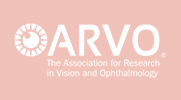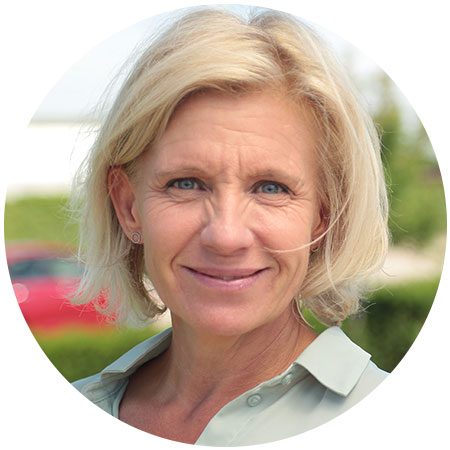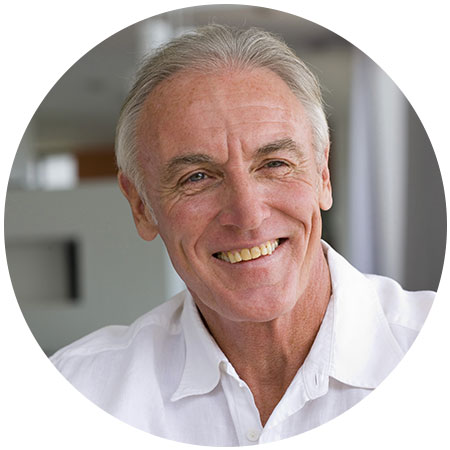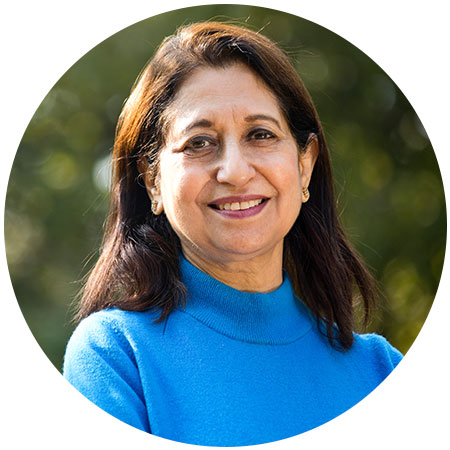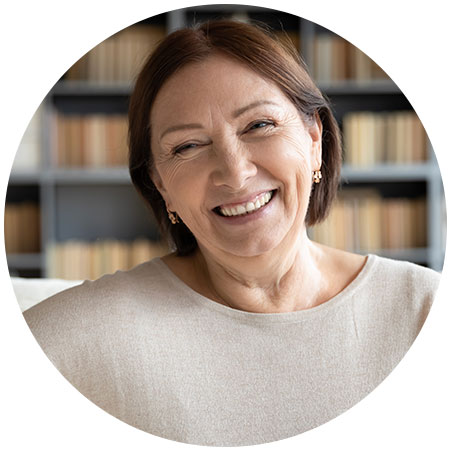Fix your cataracts early and read again without glasses in 3 simple steps
Many people don’t realise they have options when it comes to cataract surgery. We’ll help you make the right choice
Your journey to a cataract-free life begins now
Fed up with cloudy vision? Stop cataracts in their tracks and let your journey to a cataract-free life begin.
Why is cataract surgery necessary?
When cataracts are left untouched, they can worsen over time. That’s why, for cataract sufferers, surgery is a must.
Most of us will develop a cataract in our lifetime and have to choose how and when we want to have the cataract removed. But there’s no such thing as a “one size fits all” approach.
Surgery to replace the cloudy lens is the only way to improve your eyesight, and with three types of surgery available, you’re sure to find an option to suit you.
Find out more about each of the surgeries below.
Standard cataract surgery
If you’re looking to remove cataracts yet continue to wear glasses, conventional cataract surgery is the ideal surgery for you.
This is one of the most common surgeries in the world and ultimately allows you to enjoy life with an unclouded vision post-surgery.
The main goal with cataract surgery is to achieve a high level of distance vision. However, you will still likely require glasses for near vision activities like reading and mid-range like using a computer after the surgery.
Lifestyle cataract surgery
If you live an active lifestyle, lifestyle cataract surgery is the best option for you, helping to restore clear vision for your busy and active life.
In this surgery, we replace the cataract with a lens that has a range of focus, otherwise known as extended depth of focus intraocular (EDOF) lens technology.
By removing your cataracts and correcting your prescription, you can participate in most of your favourite activities without worrying about wearing glasses or contact lenses.
After surgery, you’ll be able to enjoy a broader range of vision, from 50cm to far distance, compared to conventional cataract surgery.
Laser cataract surgery
Laser cataract surgery helps to restore your vision while also significantly reducing or eliminating your dependency on glasses. This means you can mostly say goodbye to glasses, whether you rely on them for reading or distance.
The term ‘laser eye surgery’ refers to the precise and pre-programmed laser that will make the openings into the patient’s eye. It’s also known as laser-assisted cataract surgery, or femtosecond cataract surgery.
Laser cataract surgery uses the latest technology in cataract surgery and can include laser vision correction to maximise your freedom from glasses after cataract removal.
Many patients find having less dependence on their glasses revitalises their energy and gives them a level of confidence they never knew they’d lost.
Your journey to a cataract-free life begins now
Fed up with cloudy vision? Stop cataracts in their tracks and let your journey to a cataract-free life begin.
Why is cataract surgery necessary?
When cataracts are left untouched, they can worsen over time. That’s why, for cataract sufferers, surgery is a must.
Most of us will develop a cataract in our lifetime and have to choose how and when we want to have the cataract removed. But there’s no such thing as a “one size fits all” approach.
Surgery to replace the cloudy lens is the only way to improve your eyesight, and with three types of surgery available, you’re sure to find an option to suit you.
Find out more about each of the surgeries below.
Standard cataract surgery
If you’re looking to remove cataracts yet continue to wear glasses, standard cataract surgery is the ideal surgery for you.
This is one of the most common surgeries in the world and ultimately allows you to enjoy life with an unclouded vision post-surgery.
The main goal with cataract surgery is to achieve a high level of distance vision. However, you will still likely require glasses for near vision activities like reading and mid-range like using a computer after the surgery.
Lifestyle cataract surgery
If you live an active lifestyle, lifestyle cataract surgery is the best option for you, helping to restore clear vision for your busy and active life.
In this surgery, we replace the cataract with a lens that has a range of focus, otherwise known as extended depth of focus intraocular (EDOF) lens technology.
By removing your cataracts and correcting your prescription, you can participate in most of your favourite activities without worrying about wearing glasses or contact lenses.
After surgery, you’ll be able to enjoy a broader range of vision, from 50cm to far distance, compared to standard cataract surgery.
Laser cataract surgery
Laser cataract surgery helps to restore your vision while also significantly reducing or eliminating your dependency on glasses. This means you can mostly say goodbye to glasses, whether you rely on them for reading or distance.
The term ‘laser eye surgery’ refers to the precise and pre-programmed laser that will make the openings into the patient’s eye. It’s also known as laser-assisted cataract surgery, or femtosecond cataract surgery.
Laser cataract surgery uses the latest technology in cataract surgery and can include laser vision correction to maximise your freedom from glasses after cataract removal.
Many patients find having less dependence on their glasses revitalises their energy and gives them a level of confidence they never knew they’d lost.
Different types of cataract surgery for different needs
Together, we’ll assess your candidacy and recommend the best solution to suit your needs and lifestyle
| Standard Cataract Surgery | Lifestyle Cataract Surgery | |
|---|---|---|
| Removal of cataract | ||
| Dependence on glasses after surgery |
Reading glasses/glasses for distance vision not required |
Reading glasses/glasses for distance vision required |
| Implants | Premium Lenses (Trifocal/EDOF Implants) | High-quality standard lenses |
| Correction of astigmatism | included | not included |
| Laser-assisted cataract surgery
(Femto Cataract Surgery) |
possible | possible |
Have you been told you have cataracts?
See which scenario below sounds most like you to discover your best solution

I’m too young for cataracts but I don’t mind wearing glasses
You got along just fine with your reading glasses but now you’ve been told you have early cataracts.
Find out how to fix your cataracts early so you can resume life with your favourite pair of glasses.

I’m too young for cataracts AND hate my reading glasses
If getting your first pair of reading glasses was a little disheartening, being told you have cataracts can be a real low-blow.
Find out how to fix your cataracts AND use the opportunity to eliminate your need for reading glasses at the same time.
Thousands of happy patients turn back the clock on their eyes
Discover how they restored their youth with our rejuvenating eye treatments
Zum Schutz der Privatsphäre haben wir die Bilder der echten Patienten, die diese Erfahrungsberichte geliefert haben, ersetzt.
Meet your cataract surgery experts in Vienna
Our friendly eye specialists are here to turn back the clock on your eyes

Assoc. Prof. Priv. Doz. Dr. Christina Leydolt
Ophthalmologist, Lens & Cataract Surgery Specialist
FEBO
“I am passionate about giving patients a better quality of life through better vision. I have always been fascinated by eye surgery and the constant new technologies and advances in this field.” – Dr. Christina Leydolt
Dr. Leydolt is an ophthalmologist who specialises in cataract and lens surgery.
She believes every patient is unique and has their own needs and requirements for vision. These requirements depend on hobbies, lifestyle and specific desires. Therefore, finding an individually tailored treatment together with you is a big priority of hers.

Dr. Victor Derhartunian
Ophthalmologist, Refractive Surgery Specialist
FEBO
“Every person is different; most people want the best quality of vision. Combining these two worlds makes this job fascinating and unique for me every day.” – Dr. Victor Derhartunian
Dr. Derhartunian is a renowned ophthalmologist and eye surgeon.
Since his residency, refractive surgery has been Dr. Derhartunian’s passion. He enjoys combining medicine, cutting-edge technology and sophisticated research and then translating that into his clinical work. He especially enjoys the customisation involved in eye surgery and tailoring treatment to the needs of the patient.



